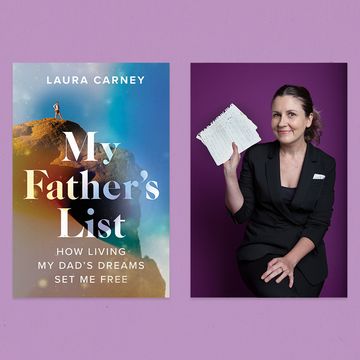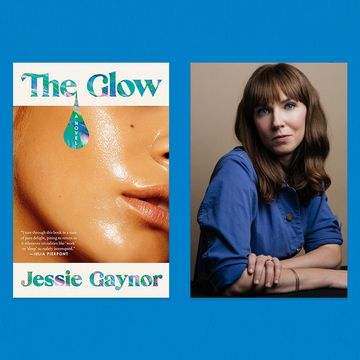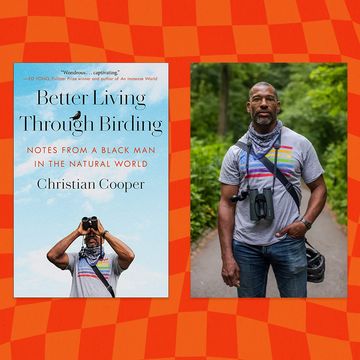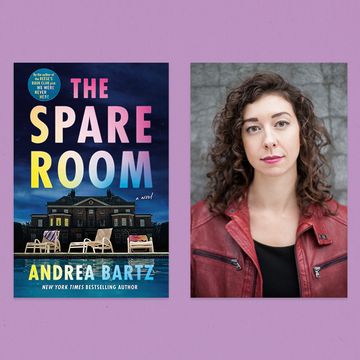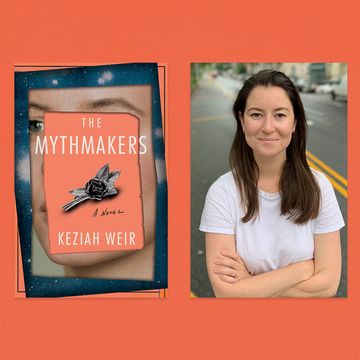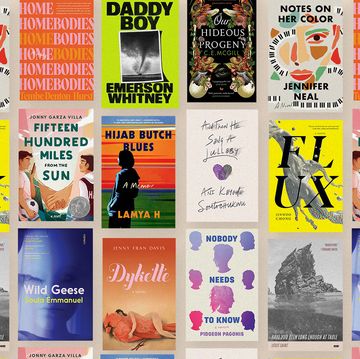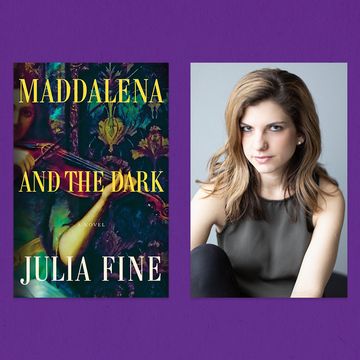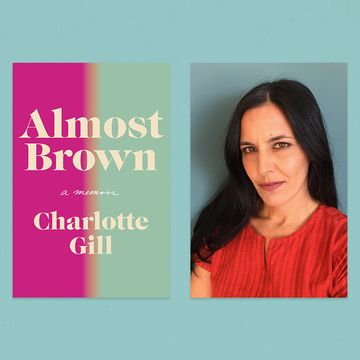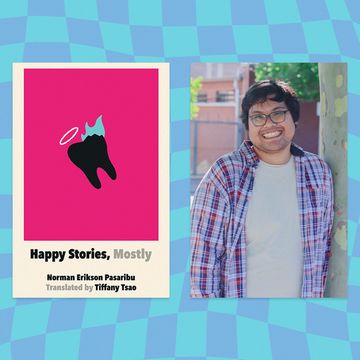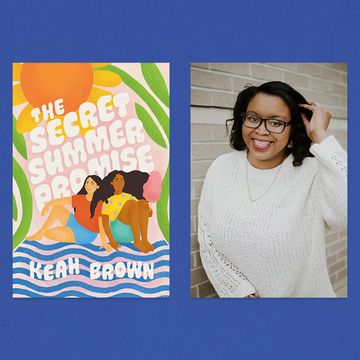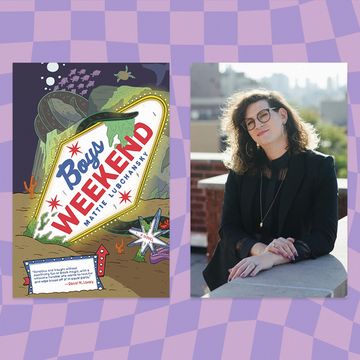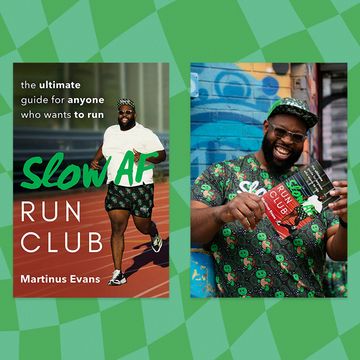Homebodies, the debut novel from Tembe Denton-Hurst, follows Mickey, a 20-something Black lesbian who is laid off from her flashy media job. When she spirals afterward, Mickey begins to search for who she is, what she truly cares about, and how she can be heard.
Homebodies is also a novel about Black women in corporate America performing our most professional selves and experiencing racism. It’s about creativity being a commodity and who decides what is valuable. At the same time, Homebodies deftly explores love and finding worth outside of a cubicle. Mickey must find acceptance for herself despite the holes others have left behind. In the end, even after her life begins to fall apart, she stands victorious.
Denton-Hurst, who’s a staff writer at The Strategist covering beauty, lifestyle, and books, spoke with Shondaland about the shared experiences of Black women in corporate spaces, growing up in romantic relationships, and how history shapes our current selves.
ARRIEL VINSON: I know the inspiration for Homebodies was getting laid off from your media job in 2019. Why was it important to write a novel after this happened?
TEMBE DENTON-HURST: I always wanted to write a novel, so I was waiting for inspiration to take me somewhere. I didn’t think I was going to write about that experience necessarily, but it definitely proved fertile ground once I was pushed to write something. I was taking a writing class at the time, and I didn’t have anything for my assignment, and so I was like, “Okay. This is what I got.” This character came to me, her story came to me, and it pretty much evolved from that point.
AV: Tell me more about the themes you explored in the novel.
TD: It was really important for me to focus on Black women’s interiority because so often I don’t get to read novels that are really, really rooted deeply in a Black woman’s interiority — her thoughts, her feelings, and the mental weight of being in these [corporate] environments. Homebodies is really about exploring Mickey’s life and examining the risks of speaking truth to power — the personal risks, not just the professional ramifications but all of the stories we tell ourselves and all of the reasons why we choose to speak up or not speak up.
AV: What I really enjoyed about the novel was I got to see Mickey — it was a day in the life of how she works. Tell me more about exploring that and, how it mirrored your own experiences of working in media.
TD: What’s so interesting is that working in media, Black women operate under this double consciousness as Black women. We’re very aware of what we’re there to do, and the kind of work that they want to see from us, while also being cognizant of the fact that we are in some ways more attuned to the way that our society functions than they are. That was an experience I really wanted Mickey to have; that’s an experience I’ve had. There’s an assumption that mainstream culture is often white culture.
We have this awareness of the bubbling up of a “trend,” or we see things that are not necessarily available to them. I could be like, “Oh, my God, Megan Thee Stallion, Megan Thee Stallion, Megan Thee Stallion.” And in 2018, no one’s listening to me, or 2019, no one’s listening to me. But then in 2022, “We need Meg for the cover.” So, who gets to be a tastemaker? Who gets to elevate these people? Who is allowed to assist these artists in their rise?
A lot of times, media is late to the party when it comes to breaking new talent. That’s one example, but it really exemplifies the experience overall. Sometimes we’re seeing things and come with evidence to say, “This is what people care about right now.” But because it’s not the people in their lives that care about it, or it’s not the conversation that they’re having in their own spaces, it’s harder to get that conversation off the ground. It’s frustrating.
AV: In the book, Mickey was trying to be friends with the other Black employee, and she really is putting on this front, but when she gets home, she’s breaking down; she’s anxious. I’d love to talk about mental health in Homebodies as well.
TD: When you’re in a bad job, it takes so much of a toll on you emotionally and mentally. It’s something that you have to hide, and your inability to hide it is unprofessional, essentially. Feeling like you’re not doing a good job at work brings up all of the old fears you have about yourself or all of the narratives that you tell yourself about how you should be better. And because you see other people — maybe for example, Chelsea in the book — doing things in a way that seems so natural, that takes such a toll on you as a person. I dug into that and showed the long-term effects of that. It’s not just surface level. It affects every single part of you as a person, at least if you really care about your work or you feel like you’re working along with your passion.
Being a writer is particularly tricky, especially in media. Most of us did not get there by accident. Once you get there, you’re just like, “This is the best thing ever. I want to keep this. I want to be in this space.” So with the kind of industry it is, it takes a big toll on you when you feel like you’re not succeeding or doing well. I wanted to show a realistic portrayal of how it touches every part of Mickey’s life. It makes her question herself. In this industry — and really, any creative industry where your output is directly linked to your mind, your ideas, your ability to produce, and your ability to be creative on demand and come up with those things on demand — if you can’t do that, you start to question everything about yourself.
AV: I’m glad that you brought up evaluating herself in every part of her life. Because both Mickey and her partner, Lex, struggle with judgment or how they appear to others, especially to their families. Mickey always wants to look successful; she wants to be the talented daughter. And Lex just wants her mother to accept her sexuality. How did you balance exploring their self-worth in Homebodies, and why was it a focal point for the novel?
TD: I wanted to show a realistic portrayal of a relationship and the tensions that exist. I’m engaged to a woman myself. And day-to-day, I feel like our relationship probably doesn’t look very different from other people’s relationships, but there are these outside and external pressures that do exist that are real and can cause real issues in a relationship. And it’s an external stressor.
AV: As much as Homebodies is about corporate America, it’s also about relationships. Mickey and her partner, Lex, are both comfortable. They mother each other, and they’re always trying to take care of each other — almost too much. Why did you examine codependency, and overextending for love, in this novel?
TD: People see women as natural nurturers. I wanted to play with this idea if women are doing that — supposedly for women who are always taking care of men, women who are taking care of children — what does it look like when that concept is applied to another woman? They’ve been in a relationship for a while, and they’ve grown up together.
They’re about 27 when the novel opens. So five years, 22, you’re just coming into yourself. They’re trying to fill in the gaps that everybody else left behind. That’s such a crucial time where you’re starting to understand your traumas, and see your parents as people, and examine oneself. You grow up in a new way. So, I really wanted to examine what happens when there’s another person opposite you, who instead of helping you heal those things, tries to fill the cracks instead. They’re trying to fill in each other’s gaps to make the other one feel okay and sustain one another instead of “let me try to do this work on my own” or “let me go to therapy.” They’re like, “We can do this for each other. We can pour into one another, and what I don’t have, you do, and vice versa.”
AV: At first, I was like, they take such good care of each other. But as the novel progressed, I could see both of them were struggling. There’s also a lot of loneliness and hiding present in the novel. Mickey and the reader are stuck with her thoughts once she gets laid off; her open letter takes a while to take off. She visits her hometown and still can’t escape her sadness. Her group chats are silent. Why was loneliness and hiding something explored here?
TD: There comes a time in everyone’s life where they do start to feel lonely, even in a room full of everybody who loves them. That is always at the beginning of one’s self-discovery — looking at your life, realizing, “I’ve built all of these things. I’ve created all these structures I’ve essentially built. I’ve filled in the cracks, so to speak, and yet I still don’t feel like I have it all.” A lot of people struggle with that.
Mickey’s so far away from herself because she’s invested more into the perception of her than who she actually is as a person. So to me, a big side effect of that is loneliness. It was important for me to explore that in an honest way because we don’t talk about that enough. They can have the great group of friends, supportive families, a good partner. They have all this stuff, but they still feel an inexplicable loneliness. In some situations, you can have all the love in the world, all the support in the world, and it still feels like you have nothing at all.
I also was writing Homebodies during the pandemic, and I wasn’t necessarily lonely during the pandemic, but I think that that was a big narrative. I was really connecting with those stories.
AV: Mickey goes home for a while and is instantly reminded of a past lover, her position in her family, and the friends she left behind. Why did you want Mickey to navigate these histories?
TD: You can’t really know where you’re going unless you know where you came from. And we get to examine her life and also have new eyes on it. When you leave home to go somewhere else, it’s easy to be like, “I left this behind. I wanted bigger and better things. Look at me. I’m doing it. I’m killing it.” And she definitely had that kind of energy: “I escaped. I got out. Look at y’all back here. I’m over there.” It’s almost a little bit of a commentary on the elitism of the industry, and when you make your job by your identity — especially that job — even though it doesn’t really provide you money, it gives you access.
It’s a hell of a drug if you let it be. So even though Mickey’s being degraded and taken down at work, and she’s overwhelmed, and underpaid, and unhappy, and anxious, and all of these things, she can still at least bring that back with her and be like, “Well, at least I’m not working for the government. At least I’m not working at Safeway.” It’s a conversation around the meaning of cultural currency. Does it really make you better than anybody else? I really wanted her to grapple with that.
Also, having those relationships that you’ve had for a really long time, and people who keep time in your life and remind you who you are, are so essential. I really wanted to build out that community because I read a lot, and my least favorite thing is when characters have no friends. I’m always like, “Where the hell are the friends?” I just wanted Mickey to have a full life, so I had to have a big cast of characters of people who loved her and cared about her.
AV: Is there anything else about Homebodies that you’d like to talk about?
TD: In so many ways, Homebodies is a love story of Mickey learning how to love herself. I tried to give her a very realistic path to growth. She’s a different person in the end because she’s lost so much, and she still has her sanity. And sometimes that’s all you can hope for. All you can hope for is to have everything fall apart and still be standing at the end of it.
I also wanted to write a story about a Black woman who is not particularly exceptional. Obviously, Mickey has good ideas, but is Mickey good at her job? We don’t really know. It’s nebulous. She could be good, she could not be good, she could be bad and just focused on what other people are doing. I wanted to be able to write a Black woman who wasn’t a hero or particularly strong. Mickey’s mediocre in a sense — and not in a bad way — but just like, she’s not going to save the world. She’s not curing cancer; she’s not doing any of those things. I just wanted to look at a very regular, ordinary, young Black girl and to tell her story and give her space on the page to be messy and figure it out.
I wrote Homebodies for Black women specifically. I wanted Black women to see themselves, or someone they know, accurately depicted on the page. Some of my favorite novels do that in some ways. I love Zora Neale Hurston’s Their Eyes Were Watching God because Janie goes through so much in that book, but she’s a very normal person, and she’s flawed, and there’s no magic. She’s a strong Black woman because she’s still standing.
I just didn’t want Mickey to have to be any of the things that we’re told we need to be; I didn’t want her to have to be strong. I didn’t want her to have to be so put together, a voice of reason, a support system for everybody. I wanted her to take up all the air in the room by being pretty misguided, not very self-aware. I wrote her so closely and intimately — as far as being in Mickey’s head the whole time — because I wanted her to take up a lot of space.
Arriel Vinson is a Tin House workshop alumna and Hoosier. She earned her MFA in Fiction from Sarah Lawrence College and received a B.A. in Journalism from Indiana University. Her poetry, fiction, and essays have appeared or are forthcoming in Catapult, Booth, Cosmonauts Avenue, Waxwing, Electric Literature, and others. She is a 2019 Kimbilio Fellow. She tweets at @arriwrites.
Get Shondaland directly in your inbox: SUBSCRIBE TODAY



